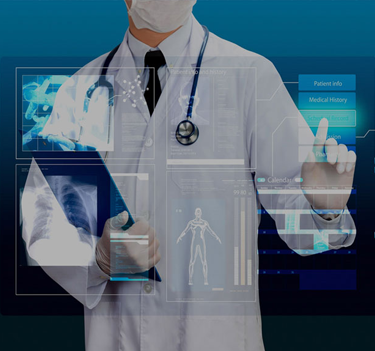AI-powered EHR systems integrate seamlessly as well as provide solutions with a broad range of functionalities. Machine learning and Natural Language Processing (NLP) can help in recording patients’ medical experiences, organizing large EHR data banks for finding important documents, gauging patient satisfaction, and certain other tasks. Machine learning models coupled with natural language processing (NLP) can assist healthcare providers in transcribing speech from a voice recognition system into text.
The algorithms can be best efficient on large volumes of patient data on patient treatment, treatment equipment, respective doctor, and so on, and carefully segmented based on an individual patient, illness, treatment for illness, and so on. This will enhance the search for information and documents in large databases. Not only medical transcription and document search, but also machine learning and predictive analytics are available.
Various other applications of AI in EHR include Data extraction, predictive analysis, clinical documentation, using color-coded notes to help physicians locate medical records faster and decision support, patient risk prediction in fields like ophthalmology predict risks of cataract surgery complications, improve diagnosis of glaucoma and age-related macular degeneration (AMD), and perform risk assessment of diabetic retinopathy (DR).
Electronic health record (EHR) data are increasingly used to develop prediction models to support clinical care, including the care of patients with common chronic conditions.
Artificial intelligence and machine learning are already making some intriguing and potentially transformative impacts on the way healthcare is delivered, from the exam room to the diagnosis to ongoing care management and beyond. But it’s important too to keep the promise and limitations of automation and augmented intelligence in mind. Various researches are taking place in AL to help physicians speed up the clinical process through human and machine interaction ultimately reducing some things out of physicians head and maintain their focus on more complex parts.
Going forward, the Artificial intelligence has an important role to play in increasing overall efficiency and speed of clinical process through automation.








